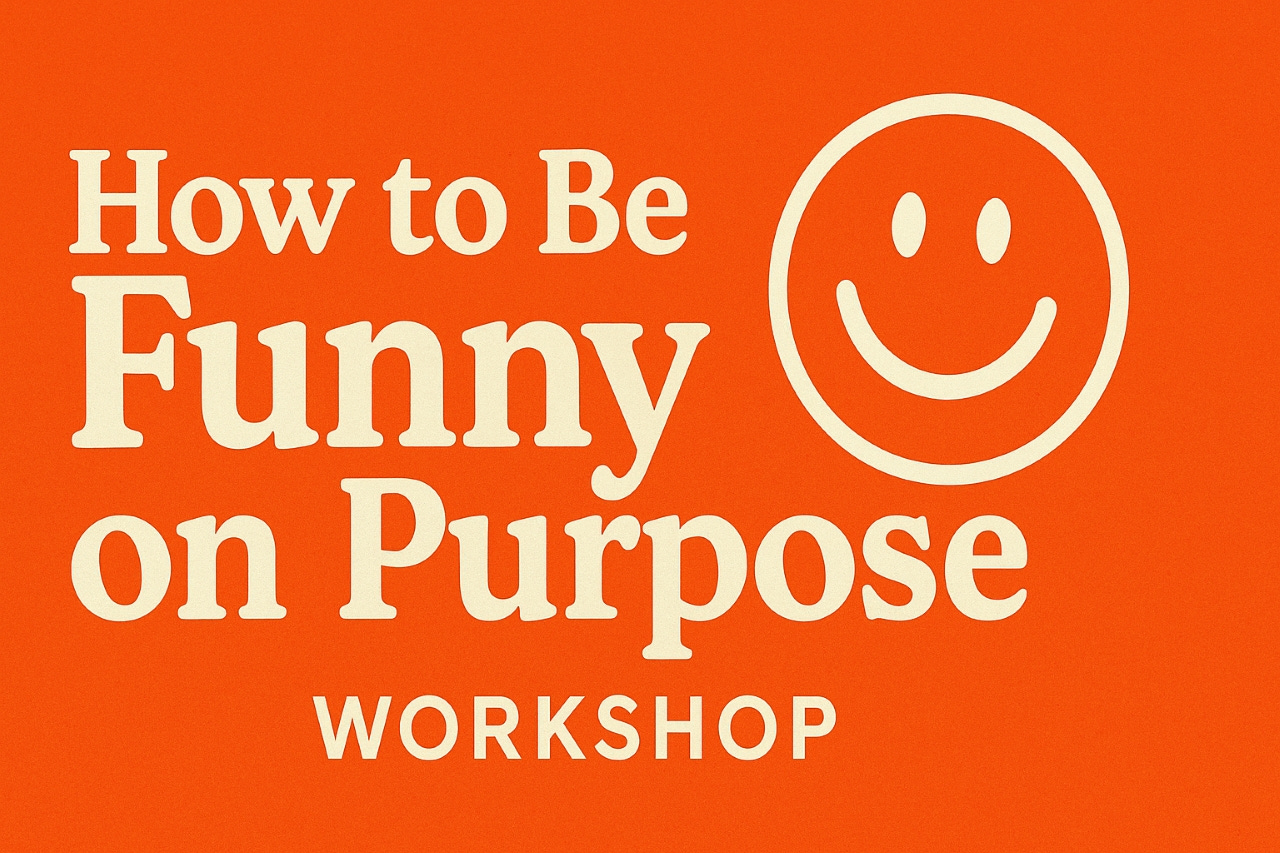It’s Easy to Be Cynical. There’s a Better Option.
A practical way to soften setbacks, fuel momentum, and make the ride more fun
I was recently interviewed by the fantastic author, Sam Horn, for her Force for Good Project. (Read more about it on her site,)
One of the questions she asked me was: if most people want to be considered a Force for Good, why don’t they actually do it?
This is a polished, more thought out version of my response:
It’s Easy to Be Cynical
I think a lot of people are held back from the things they want to do because it’s so easy to be cynical. It’s easy to assume the worst and discount what’s possible, especially in today’s world.
Which I get. Being cynical feels safer.
I’ve been a Cincinnati Bengals fan ever since I started watching American Football. And for the vast majority of those years, they haven’t been particularly good (hence the nickname The Bungles). Still, I watched every week, celebrating the highs and enduring the many lows.
A good friend of mine, on the other hand, doesn’t have an NFL team he roots for, just a team that he roots against: the Bengals. He’s celebrated way more times than I have.
And then, in 2022, the Bengals went to the Super Bowl and nearly won. And overnight, my friend went from anti-fan to avid fan… then right back to anti-fan after they lost.
That’s when I realized a lot of pessimists are just hedging their bets because they’re scared of being let down. Many think, “Well, if I expect the worst and it doesn’t happen, I am pleasantly surprised. And if it does happen, I can at least sayI was right.”
(Side note: doesn’t that seem like a pretty optimistic way to look at pessimism?)
Yes, being positive or optimistic opens you up to disappointment. If you try to do something good and it doesn’t land, that stings. If you tell a joke and no one laughs, that feels like failure.
To some, the safer path is to expect little and protect yourself.
The Short Game vs. The Long Game
Some research shows that pessimists are often happier in the short term because they constantly lower the bar.
People who lower their expectations (pessimists) often feel less emotional risk (i.e. less anxiety) than people who are highly optimistic and anticipating success. [source]
Expecting negative outcomes leads people to take more precautions in risky or uncertain situations. [source]
But long term, optimists tend to win out.
People with high levels of optimism are more likely to live longer. [source]
Optimism is associated with higher life satisfaction and better social integration in adulthood [source]
People who were more optimistic fared better psychologically during prolonged stress. They worried less, had less loneliness, showed more resilience. [source]
Because failing doesn’t mean you’re a failure. Trying something out and it not working isn’t commentary on who you are. Failing is just data.
In comedy, if a joke bombs, it doesn’t mean I’m an unfunny idiot who will never make anyone laugh ever again. It just means that joke, that structure, that timing didn’t work.
It’s the same as I learned in computer science. When a program threw an error message, it didn’t mean I picked the wrong major. It just meant something in the code needed tweaking (likely a missing semicolon, thanks a lot C++).
Humor as a Saving Grace
And this is where humor comes in.
Whether you naturally lean pessimistic or optimistic, humor helps. A optimist says the glass is half full. A pessimists says the glass is half empty. A humorist says, either way, with just a little bit of sugar, that could be Kool-Aid.
Humor isn’t about making everything amazing or pretending the hard parts don’t exist. It is about making any situation just a little bit better.
If you’re pessimistic, humor lightens the load. It takes the sting out of disappointment and gives you perspective when things do not go as planned.
If you’re optimistic, humor fuels the momentum. It amplifies the joy when things go well and makes the effort itself more enjoyable.
That’s why I believe humor is such a powerful force for good. My hope is that by teaching people the skill of humor, I can help them navigate whatever comes their way.
Not to erase the setbacks or sugarcoat the challenges, but to make the ride more bearable, more meaningful, and maybe even a little more fun.
If that resonates with you, I invite you to join me for today’s workshop (September 19 at 12pm ET).
We’ll be diving into how you can use humor in the world through a series of comedic devices. It’s going to be fun.
-Andrew






